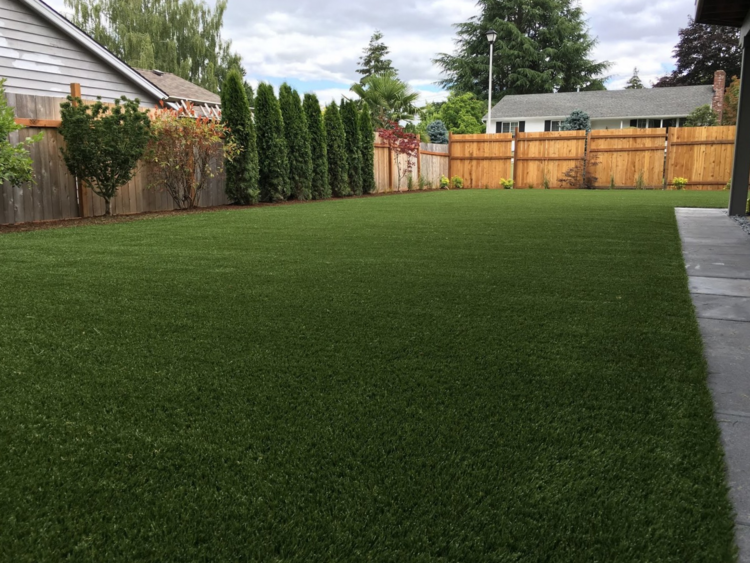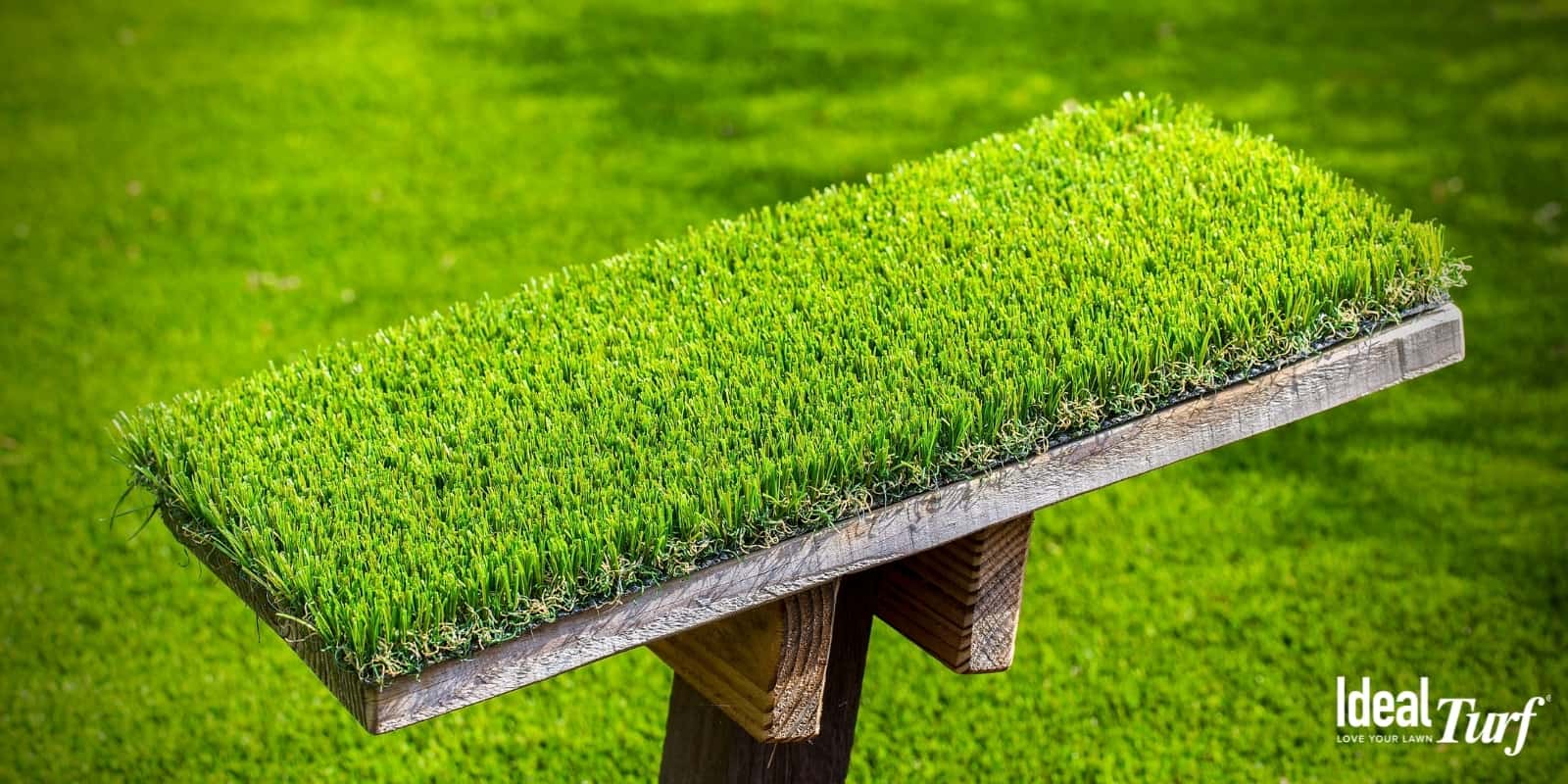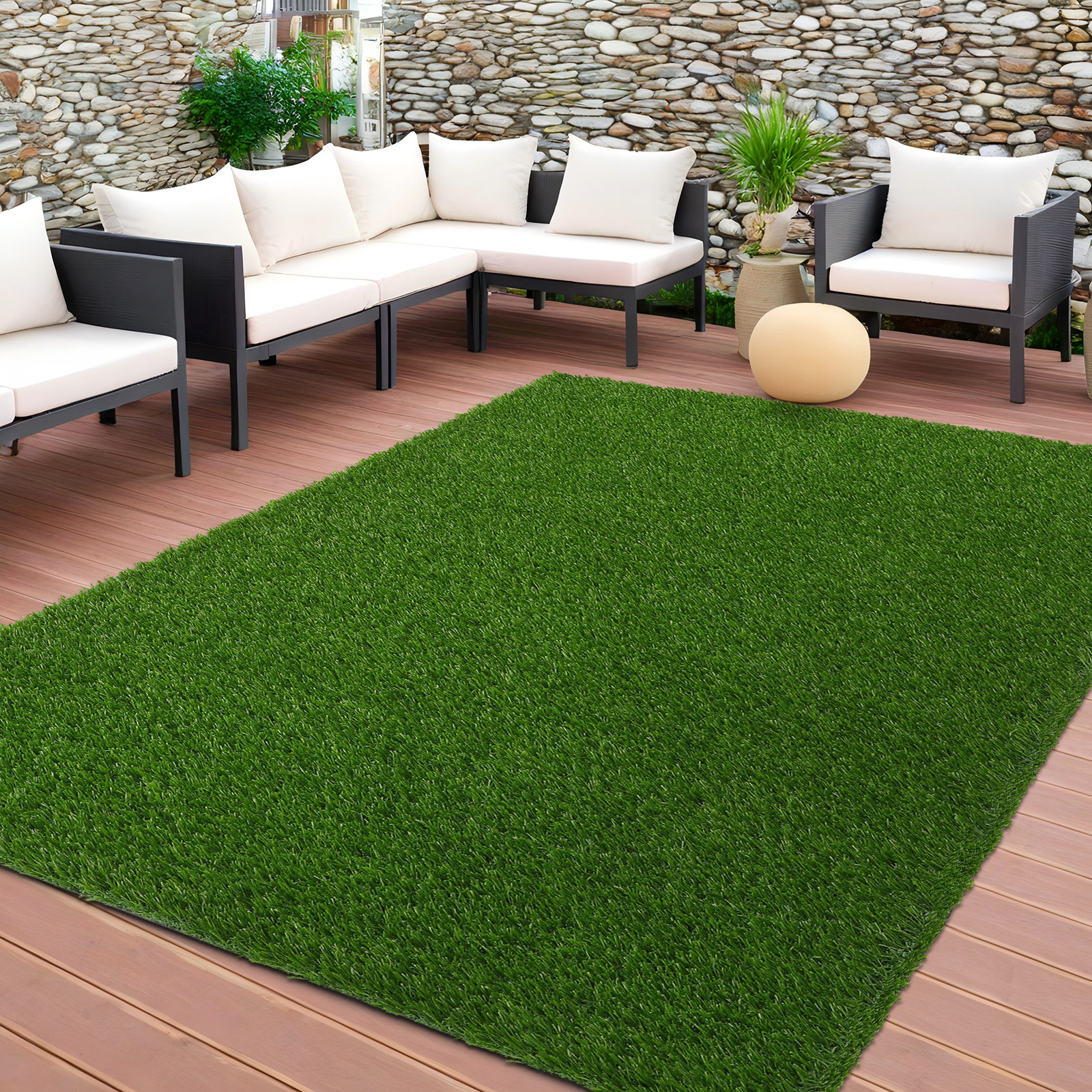Skilled Arizona Turf Installation Solutions for Home and Commercial Use
Skilled Arizona Turf Installation Solutions for Home and Commercial Use
Blog Article
Explore the Environmental Benefits of Opting for Synthetic Grass Solutions
The adoption of synthetic grass services offers a compelling possibility to deal with pressing ecological obstacles. By substantially lowering water usage and minimizing the application of damaging chemicals, these alternatives not just advertise sustainable landscaping but additionally shield regional communities. The lower carbon footprint linked with decreased upkeep activities contributes to an extra sustainable strategy to land management. The ramifications of these advantages extend beyond plain conservation efforts, elevating questions concerning their long-lasting influence on habitat preservation and general eco-friendly equilibrium. Discovering these dimensions reveals an intricate interplay worth taking into consideration.
Water Preservation Perks
One of the most considerable advantages of synthetic grass is its capacity to conserve water. Traditional grass lawns need substantial watering, particularly in areas prone to dry spell or water limitations. In contrast, synthetic grass does not need watering, considerably decreasing the general demand for water resources. This feature is particularly advantageous in arid areas where water shortage is a pressing concern.
By getting rid of the need for routine watering, artificial lawn adds to sustainable landscape practices and aids reduce the ecological impact of too much water consumption. The preservation of water extends to the decrease of overflow, which can lead to dirt erosion and waterway contamination.
Additionally, the installment of artificial grass permits house owners and municipalities to allocate water sources extra effectively, concentrating on vital uses such as drinking water and farming. The change in the direction of synthetic grass not just advertises responsible water usage but additionally straightens with broader environmental objectives targeted at protecting all-natural sources.
As areas progressively focus on sustainability, the water preservation advantages of synthetic grass provide a compelling situation for its adoption in industrial and property landscape design jobs.
Lowered Chemical Usage
The transition to artificial lawn dramatically reduces the dependence on chemical therapies frequently utilized in natural grass maintenance. Conventional turf monitoring usually includes the application of pesticides, herbicides, and plant foods to advertise growth and control parasites. These chemicals can position risks to human wellness, neighborhood wildlife, and the environment, contributing to dirt and water contamination.
In comparison, synthetic turf removes the requirement for these dangerous compounds. Once installed, it needs minimal maintenance, mostly containing routine cleaning and infrequent infill replenishment. This decrease in chemical usage not just profits the prompt setting but additionally adds to broader eco-friendly security. By decreasing the release of synthetic compounds into the ecosystem, synthetic grass advertises healthier soil and water supply.
In addition, the lack of chemical runoff connected with synthetic grass setups helps secure local waterways from pollution, sustaining aquatic life and preserving biodiversity. Arizona turf. As communities increasingly focus on sustainable methods, going with synthetic grass offers a viable service that lines up with ecological preservation objectives. Via this shift, property proprietors can enjoy lush environment-friendly areas without endangering eco-friendly wellness, leading the way for a more sustainable future
Lower Carbon Footprint

In addition, the setup of synthetic grass can lead to substantial water conservation. All-natural grass need considerable amounts of water for watering, which not just contributes to the carbon impact related to water extraction and therapy however additionally pressures local water resources. On the other hand, synthetic grass needs very little upkeep, needing no useful content watering, therefore considerably minimizing water use and its linked power prices.
In addition, the longevity of synthetic turf adds to its decreased carbon effect. With a life expectancy of as much as 15 years or even more, the requirement for frequent replacements is decreased, leading to less waste and lower power intake in manufacturing and throwing away traditional grass alternatives. Overall, synthetic grass presents a sustainable alternative for eco mindful landscaping.
Environment Conservation
Environment preservation is a vital consideration in the debate over landscape design options, especially when comparing synthetic grass to all-natural turf. Natural lawn lawns typically require extensive upkeep, including making use of chemicals, plant foods, and herbicides, which can adversely affect local ecosystems. These chemicals can seep right into the soil and waterways, harming indigenous flora and animals and interfering with regional habitats.
Synthetic grass gets rid of the requirement for unsafe chemicals, thereby securing close-by wild animals and preserving the honesty of bordering communities. The installation of man-made lawn can lead to the conversion of former grass areas into even more biodiverse landscapes, such as pollinator yards or indigenous plant locations, which can sustain regional wildlife.
Inevitably, the transition to synthetic grass not just conserves water and minimizes upkeep initiatives however additionally fosters a more unified partnership in between human tasks and the natural surroundings, advertising page habitat preservation in the procedure.
Long-Term Sustainability
Long-term sustainability is an important aspect in assessing the advantages of fabricated lawn over standard turf lawns. Among the most significant benefits of synthetic grass is its toughness; it can last as much as 15-20 years with marginal upkeep, whereas natural yard needs frequent reseeding and substitute. This durability reduces the demand for continuous sources, such as water, fertilizers, and chemicals, which are necessary for maintaining a healthy turf yard.
In addition, synthetic grass adds to a decrease in carbon exhausts related to yard care equipment. Standard yards typically call for gas-powered mowers, trimmers, and blowers, all of which add to air pollution. Arizona artificial turf. In contrast, artificial grass gets rid of the demand for such tools, advertising a cleaner setting
Moreover, the manufacturing of man-made grass significantly utilizes recycled materials, boosting its sustainability account. As makers adopt green practices, the ecological footprint of man-made turf remains to decrease.

Final Thought
The fostering of synthetic grass options offers substantial ecological benefits, including considerable water conservation, reduced dependence on hazardous chemicals, and a reduced carbon footprint. Fabricated turf aids in maintaining all-natural environments by decreasing land disturbance and advertising lasting sustainability with the use of sturdy products. Collectively, these elements highlight the possibility of artificial lawn to add favorably to environmental health and wellness and use a viable option to typical landscaping techniques in an increasingly resource-conscious globe.
In contrast, fabricated turf does not require watering, considerably lowering the total need for water sources. By decreasing the release of artificial substances into the ecosystem, man-made lawn promotes much healthier soil and water systems.
Moreover, the installment of fabricated turf can result in substantial water preservation. In comparison, man-made grass needs marginal index maintenance, needing no watering, therefore dramatically reducing water usage and its connected power prices.

Report this page